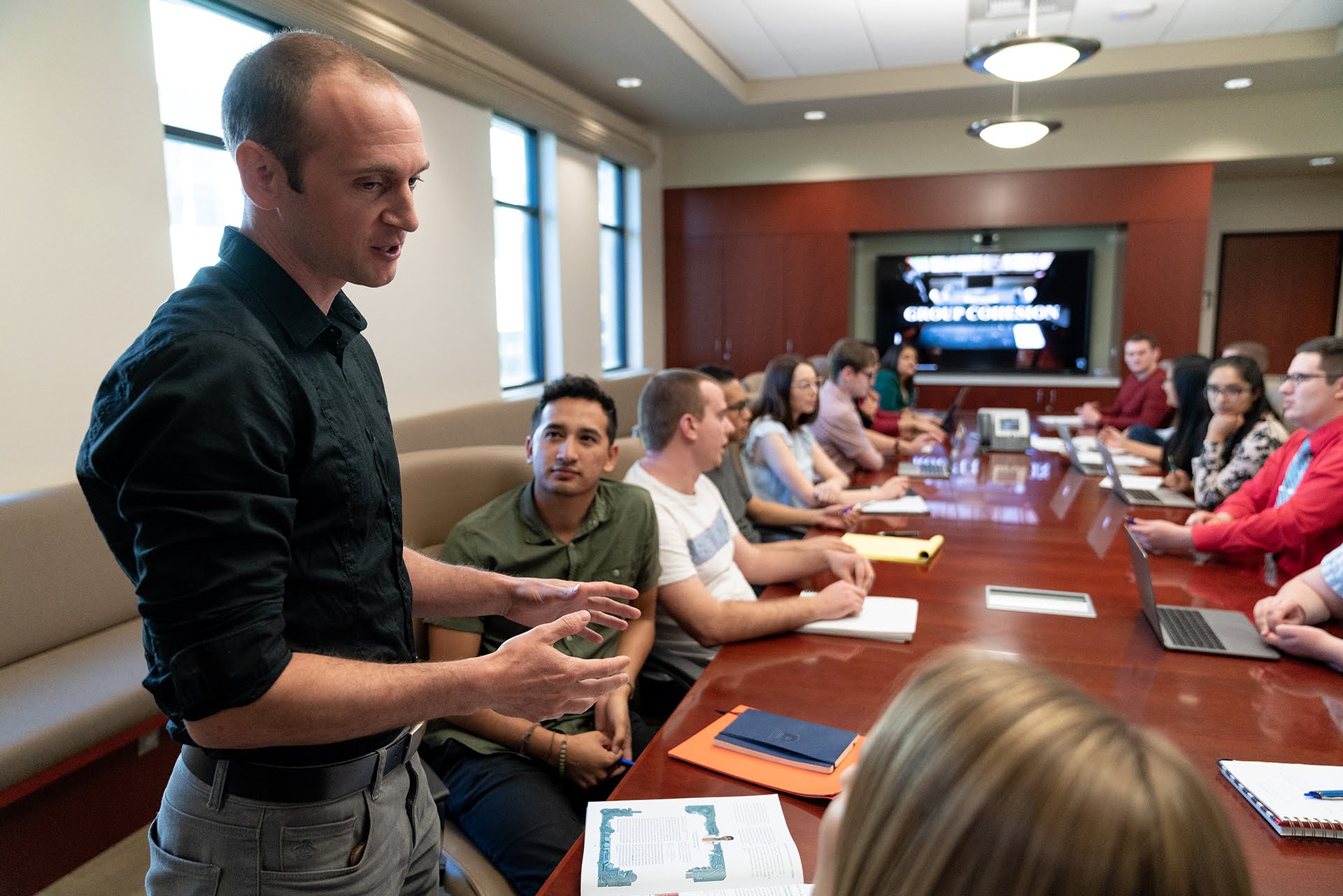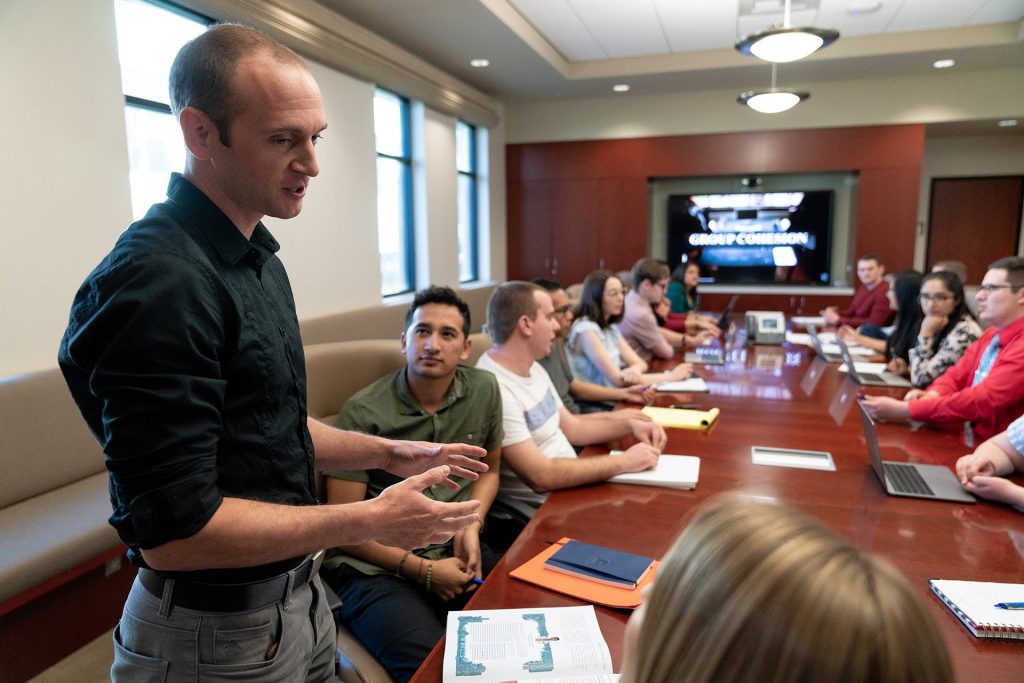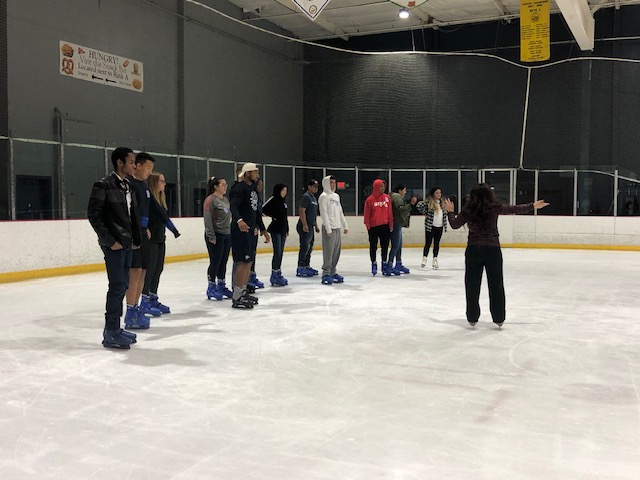By Dr. Joshua Fuller

As human beings we’ve developed the ability to imagine things that don’t exist or never could. We have the capacity to move ourselves to a cognitive representation of a differing place and time. This capacity to make mental simulations provides much of the bedrock for our accomplishments and the creation of modern as well as historic marvels. For instance, you can imagine eating a chocolate fudge popsicle while sitting on a bench, the hot sun beating down on your face and beads of sweat forming on your nose. You can imagine the freezing bone chilling wind that howls through the valleys in January as you walk home from school with your brown knit hat and goose-filled down jacket. Imagining these scenarios gives you the opportunity to prepare for them. You might anticipate the cold and pack your gloves in your bag so your hands won’t freeze, or you might imagine the heat from the sun on a cloudless hot summer day and decide to wear shorts instead of pants. The ability to create a representative world in the mind is quite possibly our greatest asset.
In addition to creating virtual cognitive worlds, we can simulate events. For example, when sitting at home watching your favorite TV show, you suddenly think about your homework and what your teacher would say tomorrow at school. You can simulate the conversation in your mind. She would ask, “Did everyone do their homework?” You look at the ground trying to be as invisible as possible hoping she forgets to check. Thinking of events like these, though they are considered unpleasant mind wanderings, motivates us to do our homework.

As it turns out, this is more pertinent to your happiness than what activities you engage in or many other happiness assessments. In a study by Matthew Killingsworth and Daniel Gilbert, participants reported their happiness, current activity, and if their mind was wandering. They pioneered a web application that allowed participants to report their immediate experience at the time of questioning via iPhone. The process by which data is collected from real-world emotional experience is called the experience sampling method (ESM). This type of data collection is quite valuable in that it reduces potential biases contained in other survey methods. The researchers asked at random times during the day how happy were participants, was their mind wandering, and what participants were doing. Based on the responses, the researchers found that unpleasant wanderings of the mind caused lower levels of happiness.In fact, to where the mind wandered effected happiness more than the activities that people were doing. In another text, Daniel Gilbert explains some of the rationale for why the mind wanders and why it is so helpful. It seems logical that mind wanderings and dreams as well frequent negative or unpleasant thoughts. When sitting in an airplane waiting to takeoff, we think of it crashing into the sea or an engine failing. Gilbert explains that this most likely evolved to combat negative events. If we think of the worst case scenario and it doesn’t happen, we feel good or at least relieved that we landed safely. These constant worst case scenarios that plague our minds mollify the impact of negative events but come at an emotional cost.Those that had wandering minds during an ESM experiment reported being much less happy than anyone else.

Perhaps being “in the moment” can have positive impact on our mental health. A multitude of research has demonstrated that specific activities can bring our attention to a focused present time frame. Activities like prayer, writing letters of gratitude, or journaling have been shown to increase mental health. These effects aren’t limited to just feeling happy. Practiced on a regular basis, these interventions can promote productivity, social relationships, and even help you live longer. If this sounds like something you would like more information on, I would encourage you to read The Happiness Advantage by Shawn Achor or The How of Happiness by Sonja Lyubomirsky.
References:
Killingsworth, M. A., & Gilbert, D. T. (2010). A Wandering Mind Is an Unhappy Mind.Science,330(6006), 932. doi:10.1126/science.1192439
Gilbert, D. (2006).Stumbling on happiness. New York, NY US: Alfred A. Knopf.
What are your thoughts? Share below-CBU student comments left within a week of the publication of this blog will be entered into a raffle for a CSHB external battery to keep your phone charged when you are on the go. Winners notified via email.
 Dr. Fuller is an Industrial / Organizational Psychologist, graduating from Seoul National University in South Korea with a doctorate in social psychology. He specializes in organizational health / well-being and is an assistant professor of psychology at California Baptist University (CBU). In his role at CBU, he serves as the Director of the Organizational Health Lab in the College of Behavioral and Social Sciences and typically teaches courses in statistics, research methods, personnel recruitment and selection, social psychology, and I/O psychology. Beyond his work in education, his research has been disseminated in multiple countries at conferences and in journal publications. His research interests include psychological well-being, happiness, culture and cognition, and organizational development. https://joshfulleriop.wixsite.com/orghealth
Dr. Fuller is an Industrial / Organizational Psychologist, graduating from Seoul National University in South Korea with a doctorate in social psychology. He specializes in organizational health / well-being and is an assistant professor of psychology at California Baptist University (CBU). In his role at CBU, he serves as the Director of the Organizational Health Lab in the College of Behavioral and Social Sciences and typically teaches courses in statistics, research methods, personnel recruitment and selection, social psychology, and I/O psychology. Beyond his work in education, his research has been disseminated in multiple countries at conferences and in journal publications. His research interests include psychological well-being, happiness, culture and cognition, and organizational development. https://joshfulleriop.wixsite.com/orghealth










